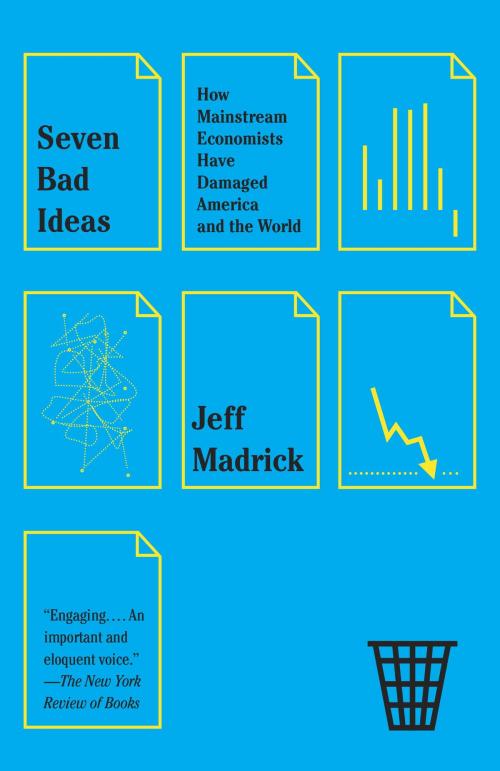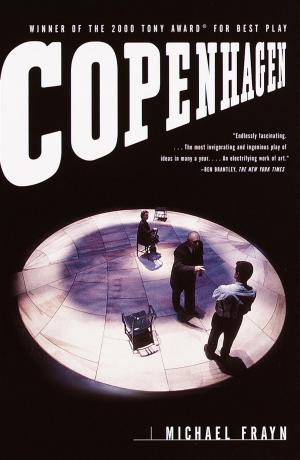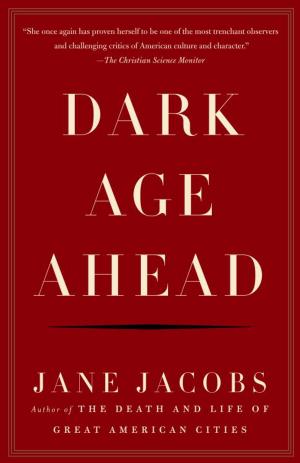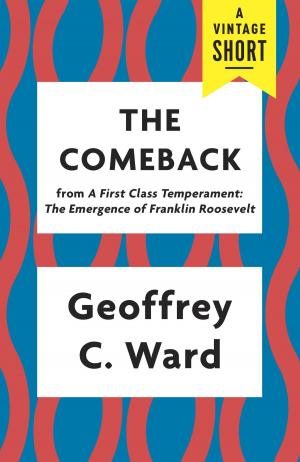Seven Bad Ideas
How Mainstream Economists Have Damaged America and the World
Business & Finance, Business Reference, Business Ethics, Nonfiction, Social & Cultural Studies, Political Science, Politics, Economic Policy, Economics, Economic History| Author: | Jeff Madrick | ISBN: | 9780307961198 |
| Publisher: | Knopf Doubleday Publishing Group | Publication: | September 30, 2014 |
| Imprint: | Vintage | Language: | English |
| Author: | Jeff Madrick |
| ISBN: | 9780307961198 |
| Publisher: | Knopf Doubleday Publishing Group |
| Publication: | September 30, 2014 |
| Imprint: | Vintage |
| Language: | English |
A bold indictment of some of our most accepted mainstream economic theories—why they’re wrong, and how they’ve been harming America and the world.
Budget deficits are bad. A strong dollar is good. Controlling inflation is paramount. Pay reflects greater worker skills. A deregulated free market is fair and effective. Theories like these have become mantras among American economists both liberal and conservative over recent decades. Validated originally by patron saints like Milton Friedman, they’ve assumed the status of self-evident truths across much of the mainstream. Jeff Madrick, former columnist for The New York Times and Harper’s, argues compellingly that a reconsideration is long overdue.
Since the financial turmoil of the 1970s made stagnating wages and relatively high unemployment the norm, Madrick argues, many leading economists have retrenched to the classical (and outdated) bulwarks of theory, drawing their ideas more from purist principles than from the real-world behavior of governments and markets—while, ironically, deeply affecting those governments and markets by their counsel. Madrick atomizes seven of the greatest false idols of modern economic theory, illustrating how these ideas have been damaging markets, infrastructure, and individual livelihoods for years, causing hundreds of billions of dollars of wasted investment, financial crisis after financial crisis, poor and unequal public education, primitive public transportation, gross inequality of income and wealth and stagnating wages, and uncontrolled military spending.
Using the Great Recession as his foremost case study, Madrick shows how the decisions America should have made before, during, and after the financial crisis were suppressed by wrongheaded but popular theory, and how the consequences are still disadvantaging working America and undermining the foundations of global commerce. Madrick spares no sinners as he reveals how the “Friedman doctrine” has undermined the meaning of citizenship and community, how the “Great Moderation” became a great jobs emergency, and how economists were so concerned with getting the incentives right for Wall Street that they got financial regulation all wrong. He in turn examines the too-often-marginalized good ideas of modern economics and convincingly argues just how beneficial they could be—if they can gain traction among policy makers.
Trenchant, sweeping, and empirical, Seven Bad Ideas resoundingly disrupts the status quo of modern economic theory.
A bold indictment of some of our most accepted mainstream economic theories—why they’re wrong, and how they’ve been harming America and the world.
Budget deficits are bad. A strong dollar is good. Controlling inflation is paramount. Pay reflects greater worker skills. A deregulated free market is fair and effective. Theories like these have become mantras among American economists both liberal and conservative over recent decades. Validated originally by patron saints like Milton Friedman, they’ve assumed the status of self-evident truths across much of the mainstream. Jeff Madrick, former columnist for The New York Times and Harper’s, argues compellingly that a reconsideration is long overdue.
Since the financial turmoil of the 1970s made stagnating wages and relatively high unemployment the norm, Madrick argues, many leading economists have retrenched to the classical (and outdated) bulwarks of theory, drawing their ideas more from purist principles than from the real-world behavior of governments and markets—while, ironically, deeply affecting those governments and markets by their counsel. Madrick atomizes seven of the greatest false idols of modern economic theory, illustrating how these ideas have been damaging markets, infrastructure, and individual livelihoods for years, causing hundreds of billions of dollars of wasted investment, financial crisis after financial crisis, poor and unequal public education, primitive public transportation, gross inequality of income and wealth and stagnating wages, and uncontrolled military spending.
Using the Great Recession as his foremost case study, Madrick shows how the decisions America should have made before, during, and after the financial crisis were suppressed by wrongheaded but popular theory, and how the consequences are still disadvantaging working America and undermining the foundations of global commerce. Madrick spares no sinners as he reveals how the “Friedman doctrine” has undermined the meaning of citizenship and community, how the “Great Moderation” became a great jobs emergency, and how economists were so concerned with getting the incentives right for Wall Street that they got financial regulation all wrong. He in turn examines the too-often-marginalized good ideas of modern economics and convincingly argues just how beneficial they could be—if they can gain traction among policy makers.
Trenchant, sweeping, and empirical, Seven Bad Ideas resoundingly disrupts the status quo of modern economic theory.















